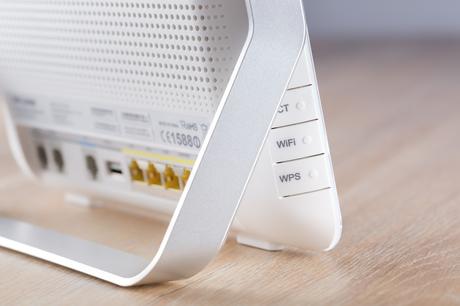An internal modem connects directly to your computer or laptop via USB port. This means that you don't need to connect it to another device such as a router. On the other hand, an external modem connects to your computer through a cable. The advantage of using an external modem is that you can easily move it around.
An internal modem is usually built into your computer or laptop. They are also known as serial modems because they communicate over a serial connection. In contrast, an external modem communicates over a parallel connection.
Difference between Internal and External Modem
Internal modem :-
A modem is a device that allows computers to communicate over telephone lines. A modem converts digital data into analog signals that are transmitted over phone lines. An internal modem is built into the computer's motherboard (the central processing unit).
External modem:-
An external modem plugs into your computer's serial port. You can use an external modem to connect to a remote computer via a dialup connection.
When deciding on modems there are several considerations to keep in mind. One of the most important factors when choosing the right modem for your personal needs is whether you should buy an external or internal one.

An external modem is a stand-alone device that connects to your computer using a serial cable. Another cable will then link the modem to your telephone jack or cable outlet. Then the modem must be plugged into an electrical outlet.
External modems are typically more expensive than internal modems. They also take up more space on your desktop. However, they are also easier to install than internal modems and provide the most flexibility in terms of features.
External modems also offer LED indicators and a power switch, both of which are not available for internal modems. This means if you have to turn of the modem to restart it you will nit have to turn of the entire computer with an external modem. It also means that lights on the front of the modem will indicate if and where there may be a problem.
An internal modem is a circuit board that is plugged into an expansion slot in the computer’s motherboard. Most modems will fit into a PSI, ISA or ARM slots. This is a more complicated installation process than the simple cable connections involved in setting up an external modem. This is because you must open up your computer to install an internal modem into a slot on the motherboard.. You will have to insert the card without disrupting the IRQs.
Because of its complicated installation process, moving an internal modem to a different computer can be a tedious process. In addition, when you run into problems with an internal modem you are usually required to open up your computer to troubleshoot. In comparison, external modems have indicator lights to point you in the direction of the problem.
While the internal modem is more difficult to install, it offers a cleaner look once it is in your computer. This is because internal modems do not require unsightly cables and wires. Internal modems also require no desktop space.
Also, keep in mind that an internal modem will take up one of your expansion slots. This means that you will not be able to use that slot for other cards, such as graphic or sound cards.
You should also keep in mind that certain internal modems cause a dilapidation of system performance while they are operating.
There are also several advantages to using an internal modem. To begin with it is typically less expensive than an external modem. It is also less likely to suffer from data loss or damage to wear and tear or overuse.
Internal modems also use less electricity to operate. External modems consume more energy even when they are turned off, unless they are unplugged from the power supply. In general each watt that an external modem uses will cost you one dollar a year.
Internal modems are also less likely to be stolen than an easy to access external device. So if your system is set up in a public forum or you plan to have a high-end modem an internal one will be more secure. A thief would have to open up your computer and unscrew the modem in order to take it.
You should consider the advantages and disadvantages of the internal and external modems when deciding which one is right for you. While you should decide which modem best meets your personal needs, most experts recommend purchasing an external modem if possible. In addition if you plan to set a home networking system an external modem is essential.
